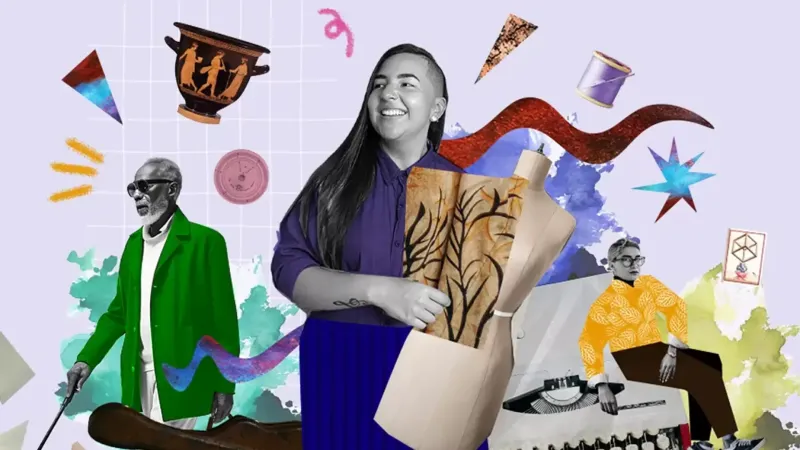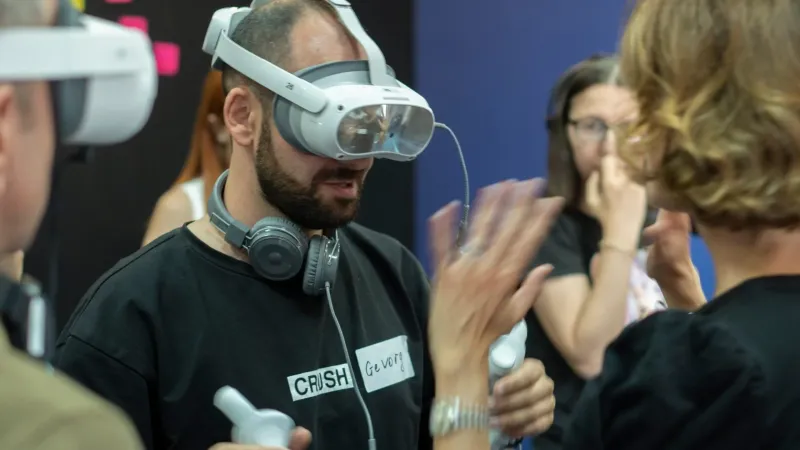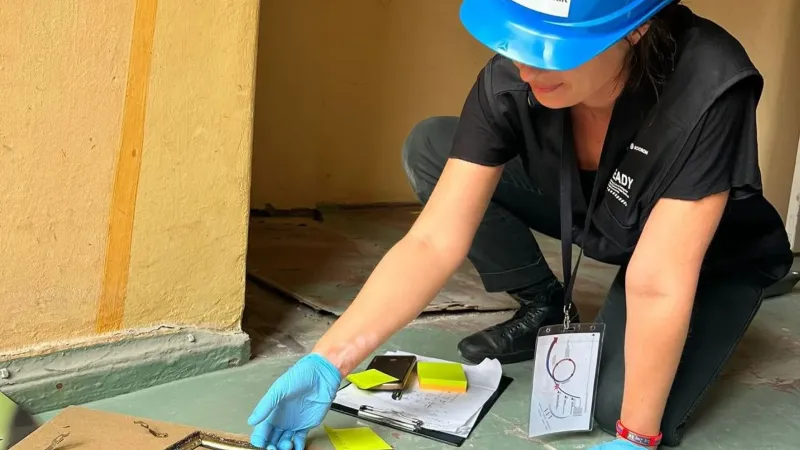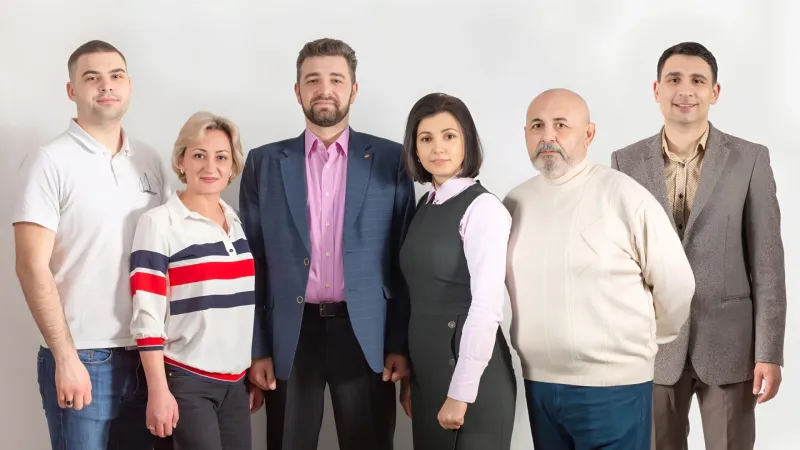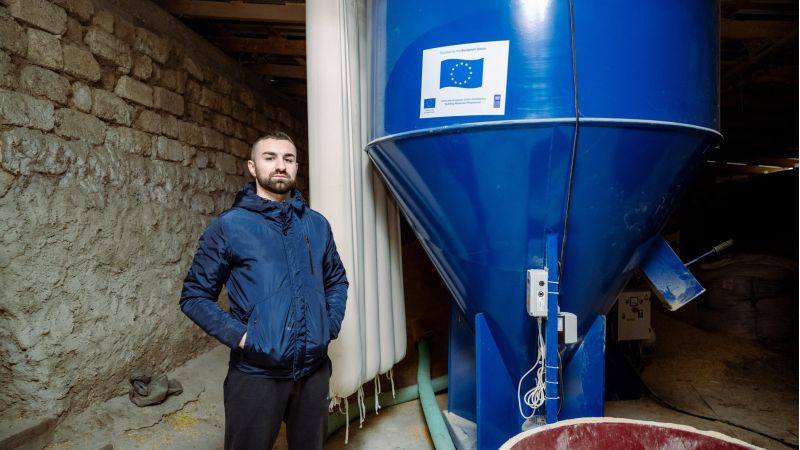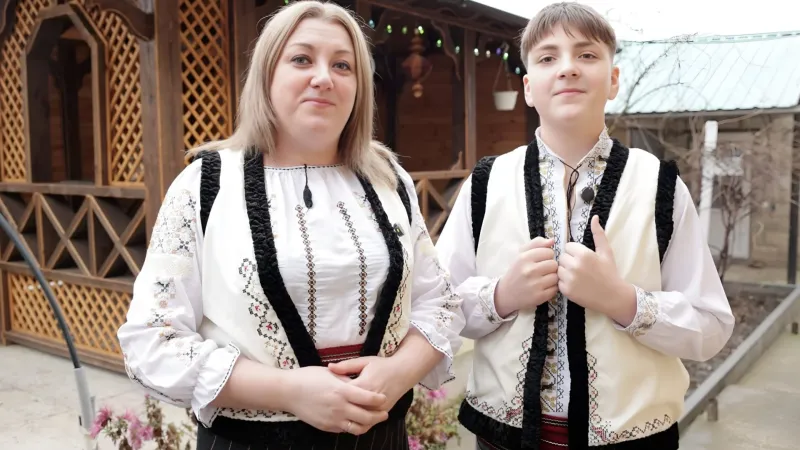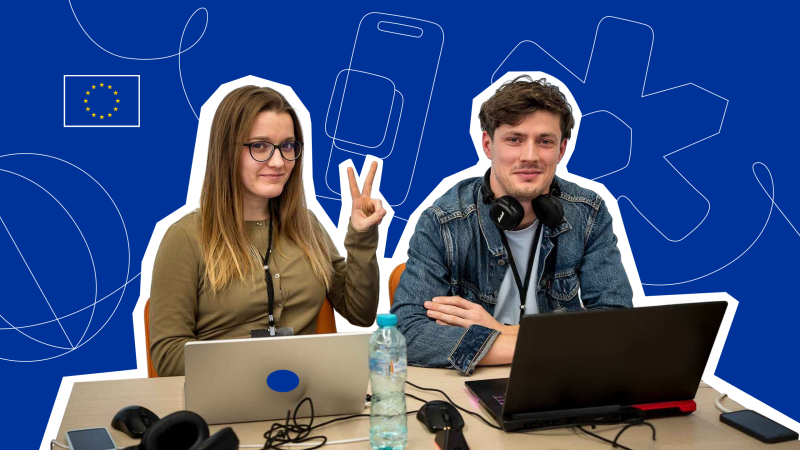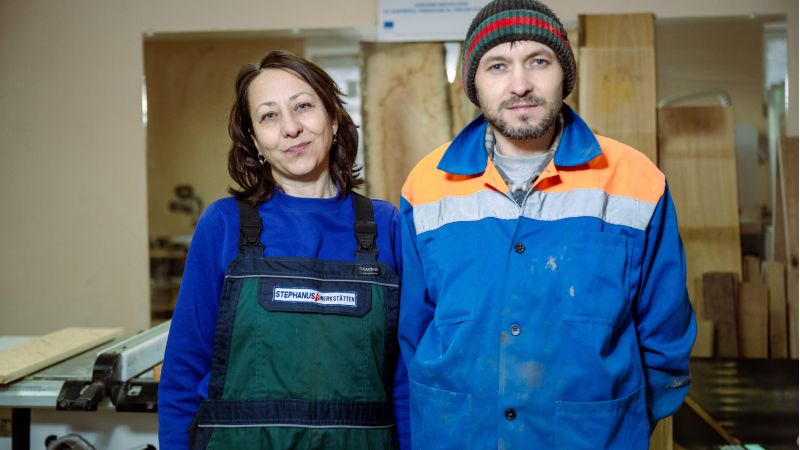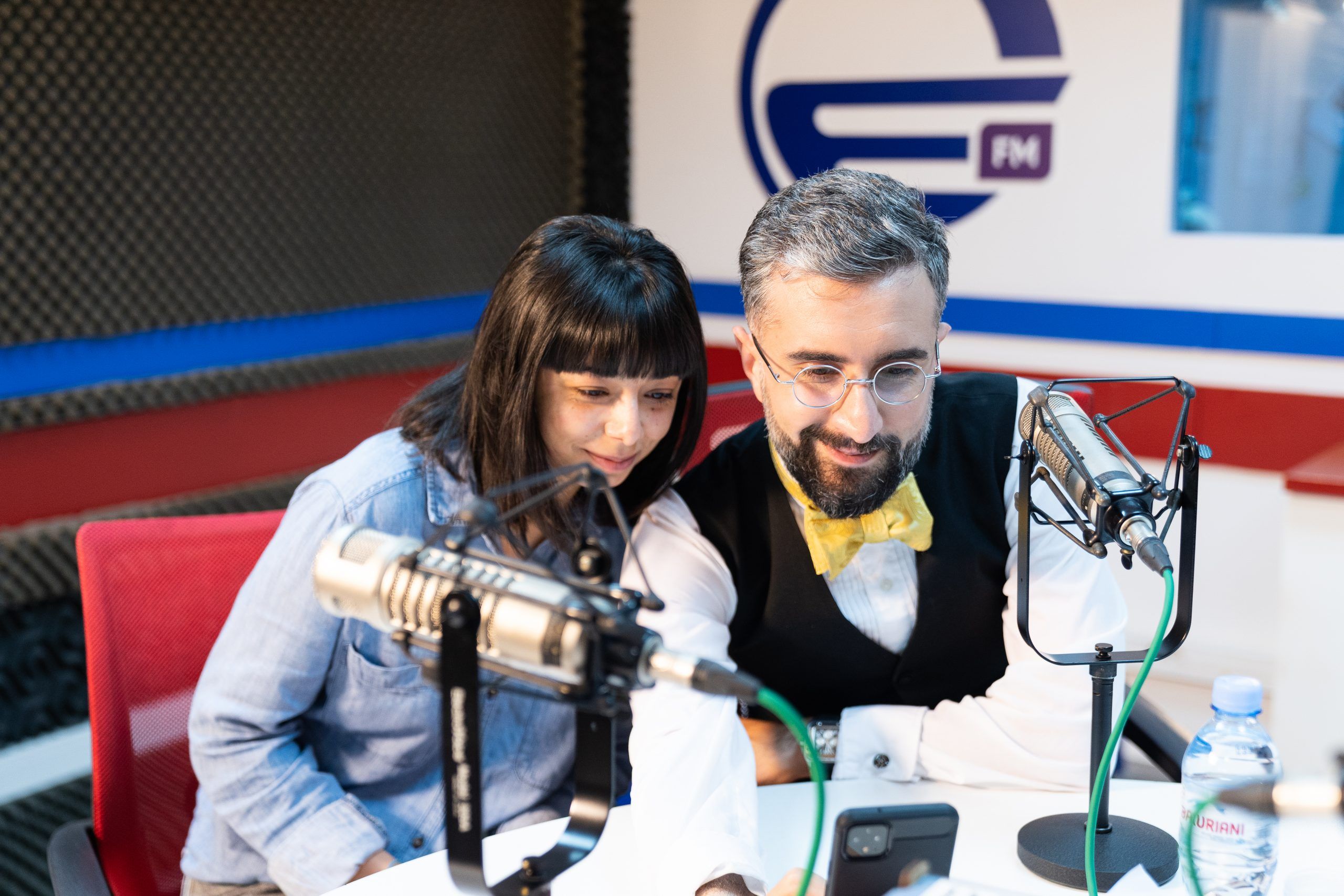
How to identify fake news – advice from Magda Gugulashvili and Zura Balanchivadze
- Cross-cutting areas
- Freedom & independence of media
“5G Internet was created to spread coronavirus”, “Anti-COVID-19 vaccines cause infertility”, “The virus was artificially produced to exterminate humankind” – these are just a few of the conspiracy theories doing the rounds over the past year.


Fake news was already one of the most significant challenges facing Georgian society before the COVID-19 crisis, but the pandemic has spawned scores of new conspiracy theories, increasingly disseminated through online channels.
Magda Gugulashvili, a journalist and expert of the Mediachecker platform, and Zura Balanchivadze, a famous TV host, blogger and activist discussed the issue of fake news and the ways to counter them. With World Press Freedom Day celebrated on 3 May, the guests spoke not only about the negative impact of disinformation, but also about the role of the media in countering fake news.
“Until declaring COVID-19 as a pandemic, the World Health Organization called it an Infodemic due to the huge volume of disinformation and misleading news spread in relation to the virus,” says Magda Gugulashvili.
Magda divides the disinformation disseminated during the pandemic into several parts. Initially, fake news appeared regarding the origin of the virus; this was followed by misinformation about prevention and so-called “folk” therapies; next came the wave of fake news about the COVID-19 vaccine.
Magda shares several important tips to identify fake news:
- Fake news often has a sensational headline;
- You will often encounter the phrase “follow the link” – a special technique to attract readers’ attention;
- Fake news makes you feel doubtful;
- Fake news mostly does not give reference to the sources and studies the information is supposedly based on;
- Fake news often relies on irrelevant sources.

“As we are talking about the coronavirus, we should remember that the most reliable sources for us are the World Health Organization and the local Centres of Disease Control,” says Magda Gugulashvili.
Magda believes people should have a sceptical attitude towards all information and news.
“I would advise everybody to be sceptical about any piece of information, no matter who spreads it – whether you hear it from a neighbor, read about it on a social network, or hear it from a media outlet,” Magda Gugulashvili adds.
Zura Balanchivadze also shares his advice on how to recognise fake news:
- In case of fake news, a link shared on Facebook often changes its title after you follow the link;
- Readers should pay attention to other content published by the same source. Unreliable media outlets are often full of irrelevant advertisements and stories.
Zura Balanchivadze says that together with double checking information, the media has an obligation to give reference to its sources.
“Responsible media always refer to a foreign language source and provides its link. And the foreign language source always refers to the study the article is based on,” says Zura Balanchivadze.
Zura Balanchivadze has himself recovered from coronavirus, and now shares with his readers information about the course of his therapy in the form of online diaries. He contradicts existing myths about coronavirus with conclusions and information from competent sources.

“I am not vaccinated yet, and I am looking forward to my turn. In this case, I just rely on the conclusions that are being circulated … I am still visiting clinics and undergoing tests to discover if there are any residual changes caused by the virus… I also publicise this information,” he adds.
Magda and Zura say the public is responsible for maintaining sceptical attitude towards information and for checking sources, while the media is obliged to provide correct and double-checked information based on reliable and relevant sources. Paying special attention is all the more important when the issue is one that affects the lives and health of people.
And they insist that people must be especially cautious about social networks, since they are most frequently used to spread disinformation.
If you are interested in recognising fake news, and in the issue of responsibility of the society and media in counteracting disinformation, listen to the podcast:
To better orient yourself in the modern media landscape and stay better informed on disinformation issues, please visit the EU initiative to combat disinformation website.
Read also: Disinformation can do anything: from insulting people to ruining them
You can listen to the full interview in the podcast:
Author: Tamar Kizivadze
Article published in Georgian by On.ge
var nid=41735;
